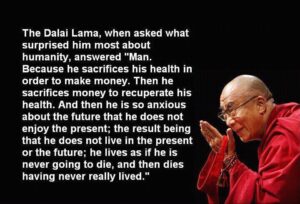The Dirty Little Secret To Use Facebook For Weight Loss.
How many minutes (or hours!) do you spend on Facebook, Twitter, Instagram and other social media websites? Do you know that social media can be used to keep you connected to a community to support your weight loss goals?
Social media used to be reserved for connecting with others, sharing pictures, and staying up-to-date on the latest news, but now researchers have found it may also help people lose weight.
In a recent study, scientists observed 22,400 people who were taking part in a large, international online weight-management program. They focused on about 5,400 people who participated in the program for at least six months and who posted their weight loss progress at least twice during the study period.
According to researchers, the most significant factor linked to weight loss was a person’s level of social networking. Over the six-month period, those who did not have any friends in the online community saw a 4.1 percent decrease in their body weight while those who were more active in the community saw a greater decrease.
People in the study with 2 – 9 friends saw a 5.2 percent decrease and the people who were in the largest cluster of friends within the network saw a 6.8 percent decrease in body weight. Those who had a high number of friends – and whose friends also had a high number of friends – had an 8.3 percent decrease in body weight.
The lead study author, Julia Poncela-Casasnovas of the Rovira Virgili University in Tarragona, Spain, explained the findings.
“It makes sense that social connectedness is related to any goal people try to achieve. It can be AA [Alcoholics Anonymous], or just joining a gym with friends, or quitting smoking. Any of these behavior-modifying endeavors are more likely to succeed if you have some kind of social support.”
Twitter’s analytics team revealed that an average of 15,000 tweets about weight loss alone are posted each day.
Brie Turner-McGrievy, a health researcher at the University of South Carolina, conducted a study to see if there was a connection between tweeting about weight loss and actually losing weight.
Turner-McGrievy, along with a team of researchers, studied 96 overweight and obese people who were interested in losing weight and used Twitter as one of their social networks. According to the study, the researchers found that engagement with Twitter was associated with greater weight loss.
But several studies have raised concerns over the use of social media and its effect on body image. Seeing images of models and thin ideals can lead to comparing our own appearances to them, which can result in body image dissatisfaction.
A recent study conducted by Florida State University and published by the International Journal of Eating Disorders found that a group of women who were asked to browse Facebook for 20 minutes experienced greater body dissatisfaction than those who spent 20 minutes researching a specific topic online.
Dr. Phillippa Diedrichs, senior research fellow at the University of West of England’s Centre for Appearance Research, says that research supports the link between social media and body image concerns.
“The more time spent on Facebook, the more likely people are to self-objectify themselves.”
Although social media can contribute to body dissatisfaction, it can also promote health if used the right way.
Christy Brissette, a dietitian and nutrition media expert, encourages people to focus on what your body can do and what you’re doing for your health rather than how your body looks.
Social media also fosters community and support towards achieving a goal. According to a Northwestern University study, dieters who used the community-supported benefits of social media lost more weight than their less-connected peers.
In the study, online dieters used a website and app called CalorieKing to access weight-loss tools and log their meals. Those who checked in regularly and “friended” other members lost 8 percent more body weight after six months.
Another study from the Dominican University of California found that 70 percent of study participants who reported their progress to a friend each week completed their goals successfully, compared to 35 percent of those who kept their goals to themselves.
Although looking at certain images and comparing yourself to a perfect ideal can lead to body image issues, using social media as part of a weight loss or fitness journey can help hold you accountable to your goals and give you the support you need to achieve them.
Instead of spending hours scrolling through your Facebook feed, now you can use social media to help transform your body and your mind. Get involved with an online community, share your goals, and you may achieve your weight loss goals faster than you thought possible.
We use a strong support system of community to support you to your weight loss goals. Our community, facebook group and personal trainer’s help support you throughout your whole journey.
Get more information @



Leave a Reply